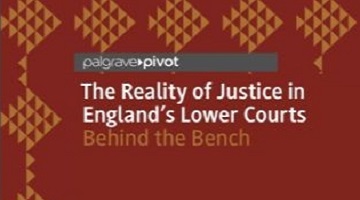About this course
LJMU's innovative LLM in International Business, Corporate and Finance Law examines legal issues affecting business organisations operating in a global environment.
- Work alongside those employed in the legal, banking and finance sectors
- Examine key legal issues affecting business organisations operating in a global context
- Learn from tutors who have extensive experience with a variety of backgrounds and research interests
- Benefit from the facilities in the 38 million Redmonds Building
- Generous funding scholarships available for home and overseas students
- Part-Time Study Option
This globally relevant field of law is the cornerstone for international business operations. Those developing their careers in business, law, banking and finance will benefit significantly from this dedicated postgraduate course of study.
Ideal for aspiring and developing financiers, lawyers, bankers and related corporate professionals, this programme aims to create a positive learning environment in which you can practice advanced scholarship and research. You will also gain academic and intellectual progression in a discrete area of international law.
The programme will give you the opportunity to critically analyse key themes of commercial and corporate law, set against an international backdrop and understand the complexities arising in this specialist field. It will challenge your thinking and stimulate your academic aspirations in the field of international business corporate and finance law.
The programme is suited to graduates with backgrounds in different disciplines (Law and non-Law), as well as to new graduates and those returning to higher education.
Course modules
Discover the building blocks of your programme
This course is currently undergoing its scheduled programme review, which may impact the advertised modules. Programme review is a standard part of the University’s approach to quality assurance and enhancement, enabling us to ensure that our courses remain up to date and maintain their high standard and relevancy.
Once the review is completed, this course website page will be updated to reflect any approved changes to the advertised course. These approved changes will also be communicated to those who apply for the course to ensure they wish to proceed with their application.
Your programme is made up of a number of core modules which are part of the course framework. Some programmes also have optional modules that can be selected to enhance your learning in certain areas and many feature a dissertation, extended report or research project to demonstrate your advanced learning.
Further guidance on modules
Modules are designated core or optional in accordance with professional body requirements, as applicable, and LJMU’s Academic Framework Regulations. Whilst you are required to study core modules, optional modules provide you with an element of choice. Their availability may vary and will be subject to meeting minimum student numbers.
Where changes to modules are necessary these will be communicated as appropriate.
Core modules
Dissertation
60 credits
60 credits
This module will enable you to undertake a detailed study of a clearly defined legal or criminal justice topic, issue or problem. It aims to:
- increase knowledge of a selected subject area and develop a greater critical awareness
- present findings in an appropriate form
Advanced Legal Research Methods
20 credits
20 credits
This module introduces research methodologies available for conducting research in law and criminal justice. It aims to:
- facilitate development of Masters-level technical legal and criminal justice research
- encourage a Masters-level degree of independence and responsibility
- introduce key research methodologies for researching law and criminal justice
- develop the technical research requirements of a Masters dissertation
Optional Modules
International Trade and Finance Law
20 credits
20 credits
This module allows you to critically analyse contemporary legal issues regarding international trade.
International Corporate Governance
20 credits
20 credits
This module seeks to introduce you to the intellectual and practical background of corporate governance in the UK and beyond. It aims to:
- provide an awareness and understanding of corporate governance through the critical examination of appropriate theoretical perspectives, models and practices
- examine critically the intellectual, practical and theoretical background to the concept of corporate governance in the UK and other international jurisdictions
- gain an understanding of the legal nature of corporations, their operations and global corporate governance failures and the reasons for such failures
- demonstrate legal and extra-legal solutions to perceived problems with past and present corporate governance regimes
- critically examine proposed future developments in and monitoring of corporate governance
International Financial Crime
20 credits
20 credits
The module allows you to undertake an analysis of the law as it relates to a range of contemporary issues in financial crime. It aims to provide knowledge and understanding:
- of the impact of a range of financial crimes
- plus analysis of attempts to curb financial crime and its impact
International Dispute Resolution
20 credits
20 credits
This module provides a detailed understanding and analysis of the various laws, regulations and systems applicable to the dispute resolution process. It aims to:
- provide a detailed understanding and analysis of the various laws, regulations and systems applicable to the dispute resolution process
- identify potential risk areas of conflict and develop effective processes, procedures and strategies to limit exposure to disputes arising notably within business, corporate or commercial situations
- increase the ability to create and implement action, highlight practices and manage disputes in both a national and international environment
International Labour Law
20 credits
20 credits
This module aims to:
- review the global nature of international labour regimes and the regulatory mechanism
- investigate the link between international labour law; corporate governance and international trade
- describe each of the rights encompassed by the term international labour and to consider the main legal elements pertinent to each right
- review the operation of international labour regimes through specific industries
- place your study within the broader setting of economic policy and commercial application
- consider the importance of the law, policies and strategies regarding equality
International Maritime Law
20 credits
20 credits
This module aims to:
- introduce the basics of International Maritime Law
- develops a critical understanding of commercial maritime issues and adequacy of the published material in maritime law
- help students consider the adequacy of the current legal structure of the modern maritime contract
- facilitate critical assessment of contemporary issues surrounding the commercial vessel in law
International Corporate Finance Law
20 credits
20 credits
As a business vehicle, the limited company is widely used. One of the reasons for its popularity is its ability to successfully raise business finance and diversify financial risk. All companies need to raise money to function successfully. And it is these issues of money which are the gravamen of international corporate finance law. An understanding of the ways in which companies can raise money, and the manner in which their money-raising activities are regulated, is central to an understanding of how companies function. Students taking this module have the opportunity to participate in wide-ranging but analytically precise discussions of international corporate finance law.
International Investment Law
20 credits
20 credits
This module aims to introduce students to the core substantive, institutional and conceptual foundations of Foreign Investment Law, as well as the broader economic, political and social implications of international investment Law. It also aims to provide a critical appreciation of the competing interests within the sphere of Investment Law and an introduction to the contemporary issues and debates within Investment Law.
International Mergers and Acquisitions Law
20 credits
20 credits
The impact of mergers and acquisition activities affects every corporate constituent, namely shareholders of target and acquiring companies, employees, creditors, directors and managers. In addition, it has an impact on the community, suppliers and national economy.
This module exposes students to the role of acquisitions in promoting corporate value, and looks at how the interests of different stakeholders and national economic development can be affected by acquisitions. Importantly, students benefit from an understanding of how legal regulations can promote mergers and acquisitions activities without stifling market functions relative to the role of managers who pursue acquisitions as investment decisions in business entities.
Your Learning Experience
An insight into teaching on your course
Study hours
Your study hours depend on the optional modules you choose. Typically your study pattern will include two study days, Mondays and Wednesdays.
Example:
Mondays: International Corporate Finance Law, 11:00-13:00; Global Finance Law & Regulation, 13:00-15:00; International Trade and Finance Law, 15:00-17:00
Wednesdays: International Corporate Insolvency, 11:00-13:00; International Corporate Governance, 13:00-15:00
The Core dissertation module is a supervised piece of independent study.
Teaching methods
The LLM is delivered by academics highly involved in research within their specific subject area, a blend of career young research active lecturers, qualified and former practitioners of law and internationally established experts in their field.
Applied learning
This stand-alone qualification enables you to advance your career prospects through the acquisition of vocationally relevant knowledge and skills qualified and former practitioners of law and internationally established experts in their field.
How learning is monitored on your programme
To cater for the wide-ranging content of our courses and the varied learning preferences of our students, we offer a range of assessment methods on each programme.
Where you will study
What you can expect from your School
The School of Law is based in the Redmonds Building, in the heart of the bustling Mount Pleasant Campus and Liverpool 's growing Knowledge Quarter. Redmonds Building is shared by two Schools within the Faculty of Arts, Professional and Social Studies - Liverpool Screen School and the School of Law - and the Liverpool Business School. This mixture of disciplines makes for a rich blend of student learning experiences.
The building contains high quality lecture theatres and seminar rooms, social spaces, and a café. It is only a short walk from LJMU's Aldham Robarts Library, which contains all the resources you will require for your studies, and is open seven days a week.
Course tutors

Emmanuel Guinchard
- Programme Leader
This course offers a range of specialised subjects, delivered by a committed and experienced team. Our students benefit from the high level of support we offer, and the opportunities to interact with peers from various academic, professional and cultural backgrounds.
This course offers a range of specialised subjects, delivered by a committed and experienced team. Our students benefit from the high level of support we offer, and the opportunities to interact with peers from various academic, professional and cultural backgrounds.
Emmanuel joined Liverpool John Moores University in 2021. He is an active researcher with an international reputation for pioneering work and expertise in the areas of European Civil Justice, a new discipline at the cross-roads of Private International Law, Civil Dispute Resolution and Comparative Law. His latest (edited) book on European Civil Justice was published by Intersentia (Cambridge, UK) in November 2020, and focuses on Rome I and Rome II in practice, i.e. the first ten years of application of the Regulations on the law applicable to (contractual and non-contractual) obligations in Europe. He blogs at https://europeanciviljustice.wordpress.com
-
 Professor
Professor -
 Lecturer/Senior Lecturer
Lecturer/Senior Lecturer -
 Reader
Reader
Career paths
Further your career prospects
LJMU has an excellent employability record with 96% (HESA 2018) of our postgraduates in work or further study six months after graduation. Our applied learning techniques and strong industry connections ensure our students are fully prepared for the workplace on graduation and understand how to apply their knowledge in a real world context.
On graduation from this course you will be well placed to enter the job market with an international strategic focus. You will be able to apply for roles that consider risk, financial transactions and structures, markets and how businesses interact with the multiplicity of policies and procedures in a range of global contexts.
Fees and funding
Tuition Fees:
- Home full-time per year:
- £8,765
Fees
The fees quoted at the top of this page cover registration, tuition, supervision, assessment and examinations as well as:
- library membership with access to printed, multimedia and digital resources
- access to programme-appropriate software
- library and student IT support
- free on-campus wifi via eduroam
Additional costs
Although not all of the following are compulsory/relevant, you should keep in mind the costs of:
- accommodation and living expenditure
- books (should you wish to have your own copies)
- printing, photocopying and stationery
- PC/laptop (should you prefer to purchase your own for independent study and online learning activities)
- mobile phone/tablet (to access online services)
- field trips (travel and activity costs)
- placements (travel expenses and living costs)
- student visas (international students only)
- study abroad opportunities (travel costs, accommodation, visas and immunisations)
- academic conferences (travel costs)
- professional-body membership
- graduation (gown hire etc)
Funding
There are many ways to fund postgraduate study for home and international students. From loans to International Scholarships and subject-specific funding, you’ll find all of the information you need on our specialist postgraduate funding pages.
Please be aware that the UK’s departure from the EU may affect your tuition fees. Learn more about your fee status and which tuition fees are relevant to you.
- International full-time per year:
- £17,750
International Scholarships and payment plans
Liverpool John Moores University is committed to supporting international students by providing a range of scholarships and flexible payment plans to help students manage their tuition fees.
Scholarships
LJMU provides a variety of scholarships to support international students. Scholarships are available to self-funded students who have accepted their offer and met all the conditions outlined in their offer letter. Students must also demonstrate that they can cover living costs, travel, and other expenses associated to studying at the university. Postgraduate scholarships include tuition fee reductions and are often offered in partnership with external funding organisations.
All self-funded international students are eligible for an automatic scholarship worth up to £4,000. For more details and to view our full list of scholarships, visit the international scholarship webpages.
Deposit
All students must pay a £5,000 deposit before they can receive their CAS letter.
For more information view our deposit page.
Tuition Fee Payment Plan
After paying their £5,000 deposit, students have the option to pay their fees in full or in three equal instalments minus any internal scholarships and discounts. There are two payment options available for international students. You can either pay your tuition fees in full before enrolment or opt for a payment plan. With the payment plan, you can pay your fees in three instalments after making your £5,000 deposit. The first instalment is due before enrolment.
All payments should be made through Flywire. Full details can be found in the How to Pay Guide.
Early Bird Tuition Fee discount
We are excited to introduce a £500 Early Payment Discount to all self-funded international students. Eligible self-funded students who pay their fees by the required deadlines will get a discount which will be automatically deducted from the 1st year of tuition fees.
To see the required deadlines please visit the webpage
Rice-Jones Scholarship
The Rice-Jones Charitable Trust was set up by an individual who wanted to benefit postgraduate law students studying in the North-West of England. The lady's late husband and her father were both lawyers. This has inspired her to help students who show academic promise and a commitment to the legal profession, yet who may not have the financial support to undertake their studies. The Rice-Jones Charitable Trust is registered with the Charity Commission: charity 117189.
The Rice-Jones Scholarship will be offered to applicants who have accepted a place to study on a postgraduate law course including, but not limited to, the Graduate Diploma in Law, the Legal Practice Course, the Bar Professional Training Course or the Masters in Law.
For all 2024/25 applications, each award will total between 250 and 1500 towards study expenses. Awards granted will depend on the applications received.
Application information coming soon.
Entry requirements
You will need:
Qualification requirements
Undergraduate degree
- A minimum 2:2 in a subject such as Law, Finance, Banking or Accounting
or
- An equivalent professional qualification
or
- Equivalent previous work experience
Further information
-
Extra Requirements
- Although most applicants will not be interviewed, we reserve the right to interview an applicant in exceptional circumstances where necessary to obtain further information to evaluate an application.
-
RPL
- RPL is accepted on this programme
International requirements
IELTS
- IELTS 6.0 (minimum 5.5 in each component)
Other international requirements
- International students applying to study a full-time taught Masters, MRes, MPhil or PhD at LJMU should check if they require an Academic Technology Approval Scheme or ATAS certificate. Contact International Admissions Team for more details
- International students entering on a Student visa cannot study part-time
How to apply
Securing your place at LJMU
To apply for this programme, you are required to complete an LJMU online application form. You will need to provide details of previous qualifications and a personal statement outlining why you wish to study this programme.
Your university life
From accommodation and academic support to clubs and societies. Find out what LJMU has to offer.
Talk to our students
Connect with a current LJMU student for advice and guidance on university life, courses and more.
See what our students are saying
At LJMU we want you to know you’re making the right choice by studying with us. You can see what our students are saying about their experience with us through their reviews on the following websites:
Related Links
News and views
Browse through the latest news and stories from the university










The University reserves the right to withdraw or make alterations to a course and facilities if necessary; this may be because such changes are deemed to be beneficial to students, are minor in nature and unlikely to impact negatively upon students or become necessary due to circumstances beyond the control of the University. Where this does happen, the University operates a policy of consultation, advice and support to all enrolled students affected by the proposed change to their course or module.










